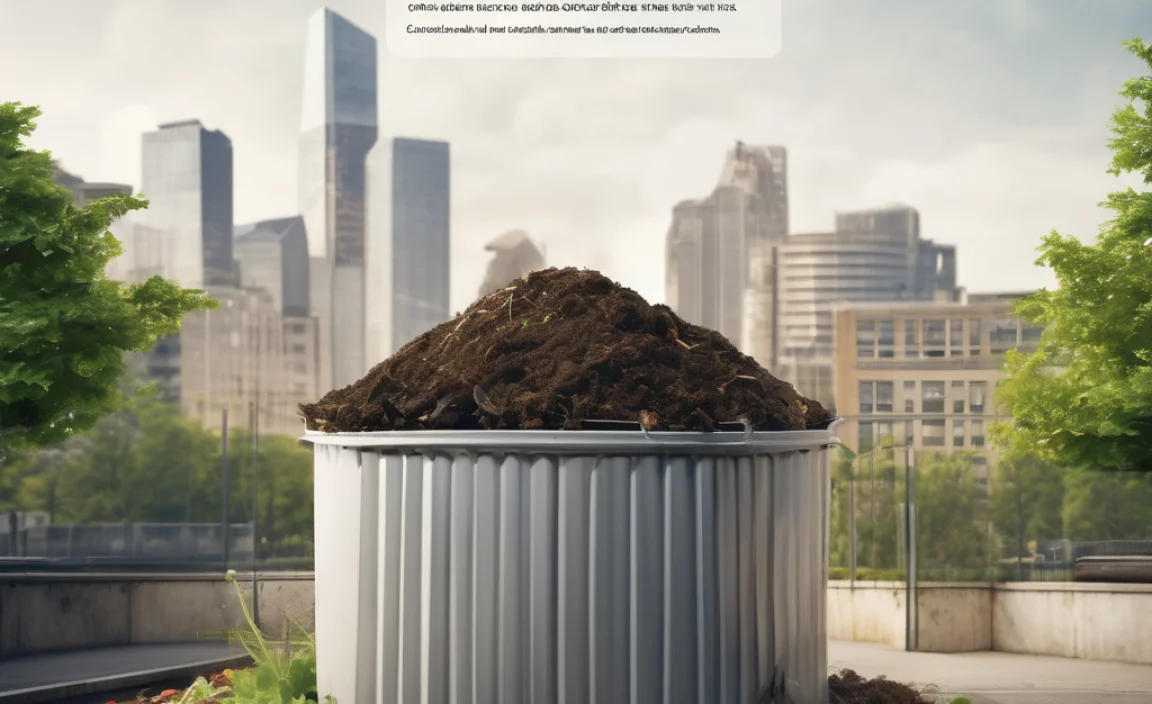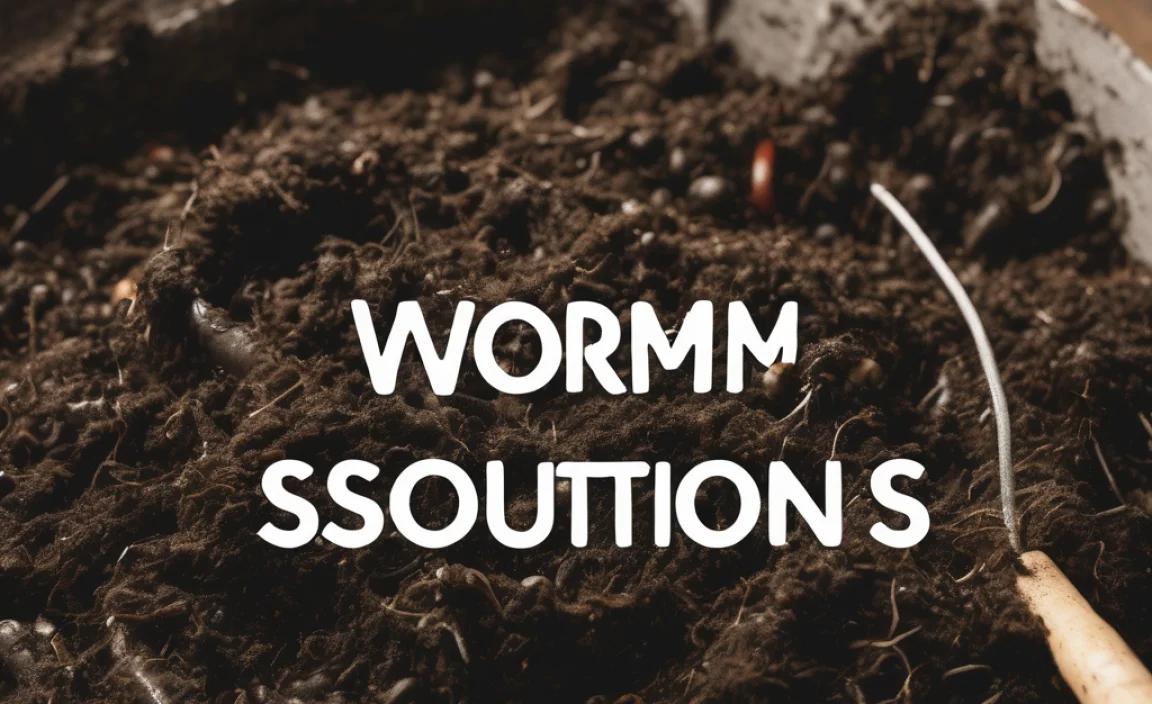Have you ever wondered where food scraps go after dinner? What if your fruit peels could help the earth? Composting is a fun way to recycle food scraps. It turns waste into something useful. Let’s explore the exciting world of composting. Find out why it’s great for kids and the planet!
Key Takeaways
- Composting turns waste into nutrient-rich soil.
- Kids learn about nature by composting at home.
- Composting for kids benefits gardens and reduces landfill waste.
- It’s an easy way to help the environment daily.
- Composting teaches responsibility and teamwork skills.
Composting For Kids Benefits The Environment
When kids compost, they help the environment. Composting reduces trash in landfills. Less trash means less pollution. When food breaks down in a landfill, it can harm the earth. Composting stops this by turning food scraps into soil. This soil is full of nutrients. Plants need these nutrients to grow strong and healthy. Kids learn they can make a difference. They can see how their scraps help plants grow.
- Composting reduces landfill waste.
- It helps create rich, healthy soil.
- Kids learn about recycling naturally.
- Composting cuts down on pollution.
- It supports plant growth in gardens.
Kids get excited seeing their food scraps turn into soil. They learn that small actions can help the planet. By composting, they see nature’s cycle in action. It encourages them to care for the environment. They start to understand the impact of recycling and composting. This understanding inspires them to be eco-friendly in other ways.
Fun Fact or Stats : Composting can reduce household waste by up to 30%!
Understanding the Composting Process
How does composting work? Think of it like cooking for the soil. First, kids gather food scraps. Things like vegetable peels, fruit cores, and eggshells are great. They mix these with leaves or grass clippings. Then, nature takes over. Tiny bugs and microorganisms break down the mix. Over time, it turns into dark, rich soil. This magical transformation teaches kids about natural processes. They learn patience too. It takes time for the mix to become compost. This waiting period is a lesson in itself. Kids discover that great results take time.
Creating a Simple Compost Bin
Building a compost bin can be a fun project. It’s easy to do at home. First, find a container with a lid. A plastic bin works well. Make small holes in the lid for air. Add a mix of food scraps and dry leaves. Keep the compost moist but not soggy. Turn it with a stick every week. This helps mix air in. Soon, kids will see changes. The mix will start breaking down. They can check its progress weekly. It’s an interactive way to learn about composting.
Composting as a Fun Science Activity
What if learning science could be more fun? Composting is a hands-on science activity. Kids observe changes and make notes. They explore how things decompose. It’s like a real-life science experiment. Kids can track how long different items take to break down. Do apple cores compost faster than orange peels? These questions make learning exciting. Kids become little scientists observing nature. They learn about decomposition, cycles, and nutrients. This hands-on approach keeps them engaged and curious.
Teaching Kids About Composting’s Impact
Composting teaches kids their actions matter. They see how small efforts lead to big changes. Each time they compost, they help the planet. Kids start understanding environmental issues. They realize waste doesn’t just disappear. Instead, it can become something useful. They feel proud of their contributions. This feeling of responsibility stays with them. They become more aware of their choices. Composting helps them think about sustainability. It encourages them to find other ways to protect nature.
- Kids learn their actions impact the planet.
- Composting shows waste can be useful.
- It promotes responsibility and awareness.
- Kids see the importance of sustainability.
- They become conscious of their choices.
When kids learn about composting, they become eco-champions. They inspire their friends and family. They share their knowledge and excitement. This spreads awareness and encourages more people to compost. Together, they make a bigger difference. Kids’ actions turn into a positive ripple effect. This collective effort makes a better future for everyone.
Fun Fact or Stats : Composting can reduce the need for chemical fertilizers!
Exploring Composting Around the World
Did you know people compost worldwide? Each place has its methods. In India, some use worms to compost. In Japan, people use a special powder called bokashi. This diversity shows composting’s importance globally. Kids can research different techniques. They can compare them to their method. This exploration expands their minds. They see how people adapt to their environment. It also highlights the universality of composting. People everywhere understand its benefits. This shared knowledge connects us all.
Understanding Composting’s Role In Gardens
Why do gardens love compost? Compost acts like a superfood for plants. It makes the soil rich and healthy. Plants grow strong and produce more flowers and fruits. Kids can witness this transformation. They see their compost’s effect on plants. Gardens become their living classroom. Kids feel a sense of accomplishment. They take pride in their flourishing plants. This success motivates them. They continue composting and gardening. It becomes a rewarding cycle. They learn the joy of nurturing nature.
Exploring Composting in Schools
Many schools have started composting programs. It’s a great way to learn together. Students collaborate to collect scraps. They turn waste into useful compost for school gardens. This teamwork builds community. Kids learn to work together for a common goal. It enhances their sense of belonging. Composting in schools also offers practical science lessons. Teachers incorporate it into their curriculum. They use it to teach decomposition, recycling, and more. This real-life application makes learning fun and memorable.
Conclusion
Composting for kids benefits the planet and helps them learn. It teaches responsibility, teamwork, and environmental awareness. Kids discover they can make a difference. Their actions turn waste into helpful soil. They gain skills and knowledge to protect the earth. Composting inspires them to be eco-friendly and thoughtful citizens.
FAQs
Question: Why should kids start composting?
Answer: Kids should compost to help the environment. Composting reduces waste and creates rich soil. It teaches kids about recycling and nature. They learn responsibility and teamwork. Composting for kids benefits their learning and the planet.
Question: What items can kids compost?
Answer: Kids can compost fruit peels, vegetable scraps, and eggshells. They can also add coffee grounds and tea bags. Avoid meat and dairy products. These can attract pests. Composting these items helps kids learn about waste management and recycling.
Question: How does composting help gardens?
Answer: Composting enriches garden soil. It provides essential nutrients for plants. This helps plants grow strong and healthy. Kids can see the results in their gardens. Composting for kids benefits their understanding of plant care.
Question: How long does composting take?
Answer: Composting takes a few months to a year. It depends on the materials used and the environment. Kids learn patience as they watch their compost mature. Regular turning and adding air can speed up the process.
Question: Can composting be done indoors?
Answer: Yes, kids can compost indoors using a small bin. They can keep it under the sink or in a corner. Use a container with a lid to avoid odors. Indoor composting teaches kids about space-efficient recycling.
Question: Are there any safety tips for composting?
Answer: Yes, wear gloves when handling compost. Wash hands after touching it. Avoid adding harmful materials like plastic. Kids should be supervised. Following these tips ensures a safe and fun composting experience.


